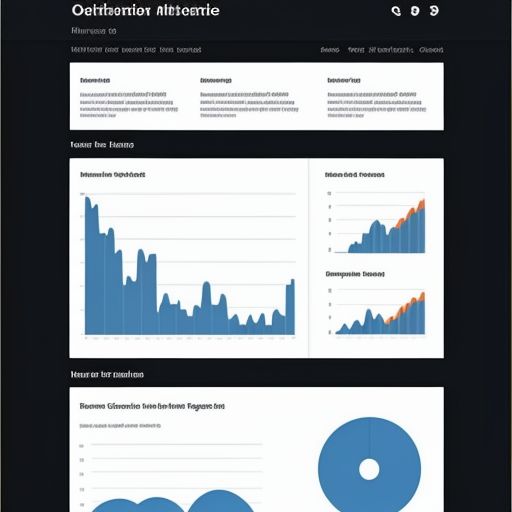Starting a small business is an exciting adventure, and in today’s digital age, a strong online presence is non-negotiable. Your website is often the first point of contact for potential customers, making reliable web hosting an essential investment. But with countless options available, finding the Best Web Hosting For Small Businesses can feel overwhelming. What factors should you prioritize? What are the key features to look for?
This comprehensive guide will answer your burning questions, cut through the technical jargon, and equip you to make an informed decision. Let’s dive in!
Understanding Web Hosting and its Importance for Small Businesses
What Exactly is Web Hosting?
Imagine your website as a physical store. You’d need a prime location to house your products and attract customers. Similarly, your website needs a digital space – a server – to store its files (images, content, code) and make them accessible to visitors around the clock. That’s precisely what web hosting provides.
Web hosting companies own and maintain these powerful servers, offering varying plans to accommodate different needs and budgets.
Why is Reliable Web Hosting Crucial for Your Small Business?
1. Visibility and Accessibility: A reliable hosting provider ensures your website is up and running 24/7, allowing potential customers to find you anytime, anywhere. Downtime, on the other hand, translates to lost opportunities and revenue.
2. Performance and Speed: In today’s fast-paced world, slow loading times are unacceptable. A fast-loading website enhances user experience, reduces bounce rates, and boosts your search engine rankings. Web hosting plays a pivotal role in determining your website’s speed.
3. Security and Data Protection: Protecting sensitive customer information is paramount. A reputable hosting provider will implement robust security measures like firewalls, malware scanning, and SSL certificates to safeguard your website and data from cyber threats.
4. Scalability for Future Growth: As your business expands, so will your website traffic and resource requirements. A good hosting plan allows for seamless scalability, ensuring your website can handle the increased demand without compromising performance.
 Web Hosting Server Illustration
Web Hosting Server Illustration
Types of Web Hosting for Small Businesses
Navigating the world of web hosting can be tricky. Let’s demystify the most common types of hosting options available to small businesses:
1. Shared Hosting: Budget-Friendly and Beginner-Friendly
Ideal for: Start-ups, bloggers, small websites with moderate traffic.
How it works: Shared hosting is like renting an apartment in a large building. You share server resources (RAM, CPU, bandwidth) with multiple other websites.
Pros:
- Affordable
- Easy to set up and manage, even for beginners.
Cons:
- Performance can be affected by other websites on the shared server.
- Limited resources and scalability.
2. VPS Hosting: Enhanced Performance and Control
Ideal for: Growing businesses, e-commerce sites, websites with higher traffic and demanding applications.
How it works: A virtual private server (VPS) is like owning a condo within a larger building. You still share a server with others, but you get a dedicated portion of resources, offering more power and control.
Pros:
- Increased performance and reliability compared to shared hosting.
- Greater customization options and control over server settings.
Cons:
- More expensive than shared hosting.
- Requires some technical knowledge for server management.
3. Cloud Hosting: Scalability and Flexibility at its Best
Ideal for: Businesses experiencing rapid growth, websites with fluctuating traffic, those seeking maximum scalability.
How it works: Cloud hosting utilizes a network of interconnected servers (the “cloud”) to distribute your website’s resources. This offers unparalleled flexibility and scalability.
Pros:
- Highly scalable – easily adjust resources as needed.
- High uptime and reliability due to the distributed nature of the cloud.
Cons:
- Can be more expensive than shared or VPS hosting, especially for high-traffic sites.
- Pricing models can be complex.
4. Managed WordPress Hosting: Tailored for WordPress Websites
Ideal for: WordPress websites of all sizes, particularly those seeking hassle-free management and optimized performance.
How it works: Managed WordPress hosting is a specialized service tailored for WordPress websites. Your hosting provider handles all the technical aspects, including security updates, backups, and performance optimization.
Pros:
- Optimized for WordPress performance.
- Hassle-free management – your host takes care of technical tasks.
Cons:
- Can be more expensive than other types of hosting.
- Limited flexibility if you need to use non-WordPress applications.
Key Factors to Consider When Choosing Web Hosting for Small Businesses
With a clearer understanding of the different types of hosting, let’s explore the essential factors to guide your decision-making process:
1. Uptime and Reliability: The Backbone of Your Online Presence
Uptime refers to the percentage of time your website is up and running. Aim for a hosting provider that guarantees at least 99.9% uptime. Every minute of downtime translates to potential lost revenue and a negative impact on your reputation.
2. Performance and Speed: Don’t Keep Your Visitors Waiting
Website speed is crucial for user experience and SEO. Research shows that users abandon websites that take longer than a few seconds to load. Choose a hosting provider that utilizes fast servers, content delivery networks (CDNs), and caching technologies to optimize website performance.
3. Security Measures: Protecting Your Business and Your Customers
Website security should be a top priority. Look for a hosting provider that offers:
- SSL certificates: Encrypt sensitive data transmitted between your website and visitors’ browsers.
- Firewalls: Act as a barrier against malicious traffic.
- Malware scanning and removal: Regularly scans for and removes harmful software.
- Regular backups: Ensure you can quickly restore your website in case of data loss.
4. Customer Support: There When You Need Them
Technical issues can arise at any time. Opt for a hosting provider with 24/7 customer support via phone, email, or live chat. Responsive and knowledgeable support can save you time and frustration when you need it most.
5. Pricing and Value for Money: Finding the Right Fit for Your Budget
Web hosting prices vary widely depending on the type of hosting, features offered, and contract length. While it’s tempting to choose the cheapest option, prioritize value for money over the lowest price tag. Consider the features you need, the level of support offered, and the provider’s reputation.
hosting.decornhalux.com/wp-content/uploads/2024/07/small-business-website-security-668f85.jpg" alt="Small Business Website Security" width="512" height="512">Small Business Website Security
Conclusion: Empowering Your Small Business with the Right Web Hosting
Selecting the best web hosting for your small business is a critical decision that directly impacts your online success. By carefully considering your specific needs, budget, and the key factors outlined in this guide, you can confidently choose a hosting provider that will empower your business to thrive in the digital landscape.




